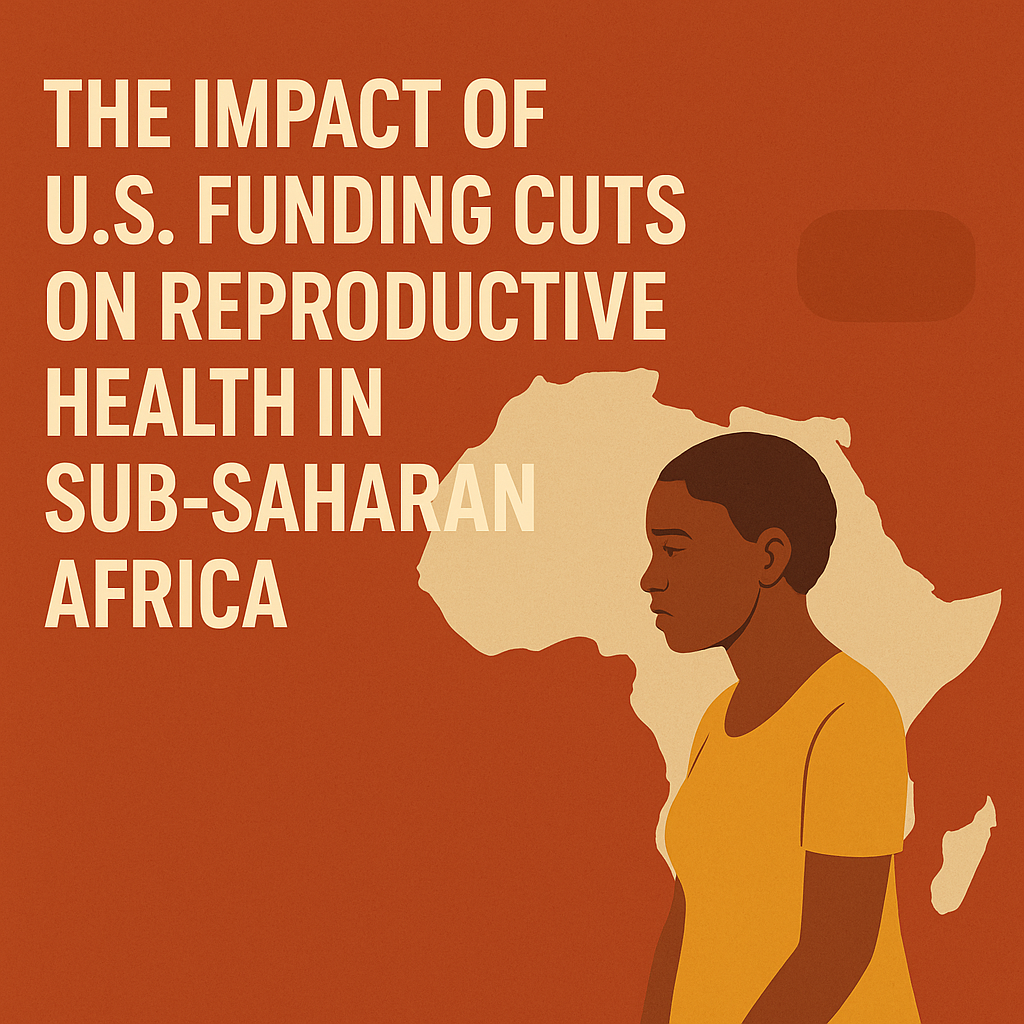
The Silent Crisis: U.S. Funding Cuts and the Future of Reproductive Health in Sub-Saharan Africa
At CORHT Consult, we are dedicated to strengthening health systems, advancing reproductive rights, and amplifying community voices across Africa. But today, we face a mounting challenge that threatens to roll back years of progress in sexual and reproductive health and rights (SRHR): the impact of U.S. funding cuts on vital health services in Sub-Saharan Africa.
A Critical Lifeline Under Threat
For decades, U.S. foreign aid—particularly through USAID and PEPFAR—has provided crucial support for family planning, HIV/AIDS prevention and treatment, maternal health, and comprehensive SRHR programs in the region. These investments have saved lives, reduced maternal mortality, and empowered countless women and girls to take control of their reproductive choices.
However, recent U.S. policy shifts—especially the expanded “Global Gag Rule” and subsequent funding cuts—have had far-reaching consequences. Although this policy has been rescinded, its lingering effects, paired with broader aid reductions, continue to disrupt essential services in already underserved areas.
Real Lives, Real Impact
At CORHT Consult, we work with communities that are directly affected by these cuts. We’ve witnessed:
-
Health facility closures and reduced service hours;
-
Layoffs of trained reproductive health workers;
-
Disruption in access to contraceptives, especially for adolescents and rural women;
-
And a rise in misinformation, stigma, and unsafe practices due to reduced outreach.
These setbacks are not just numbers on a report. They represent adolescent girls forced into early motherhood, women unable to access care during pregnancy, and communities left vulnerable to preventable health crises.
Undermining Gender Equity and Development
Access to quality reproductive health is not just a health issue—it is a human rights issue. When women and girls are denied control over their reproductive lives, it compromises their education, economic independence, and overall well-being. The funding cuts, therefore, undermine broader efforts to promote gender equality and sustainable development across the continent.
As a consulting firm committed to rights-based, evidence-informed, and gender-transformative solutions, we see this as an urgent call to action.
Building Resilience, Reclaiming Ownership
While donor funding plays an important role, the crisis has also highlighted the need for locally led, sustainable approaches. CORHT Consult is working with governments, development partners, civil society, and communities to:
-
Advocate for increased domestic investment in SRHR;
-
Support South-to-South knowledge exchange and partnerships;
-
Design and implement community-centered, culturally responsive programs;
-
Strengthen health systems from the ground up, with a focus on inclusivity and accountability.
We believe in African solutions to African challenges, and we are proud to be part of a growing movement that places communities—not donors—at the center of development.
Moving Forward Together
To safeguard the gains made in reproductive health, we must act collectively. We call on:
-
Policymakers to prioritize SRHR in national budgets and policies;
-
Donors to support unrestricted, rights-based health programming;
-
Civil society to amplify community voices and hold systems accountable;
-
And researchers and practitioners to generate evidence that drives innovation and advocacy.
At CORHT Consult, we remain steadfast in our mission to advance reproductive justice, health equity, and dignity for all. The journey is complex, but with collaboration, commitment, and courage, we can build a future where no woman or girl is left behind.










